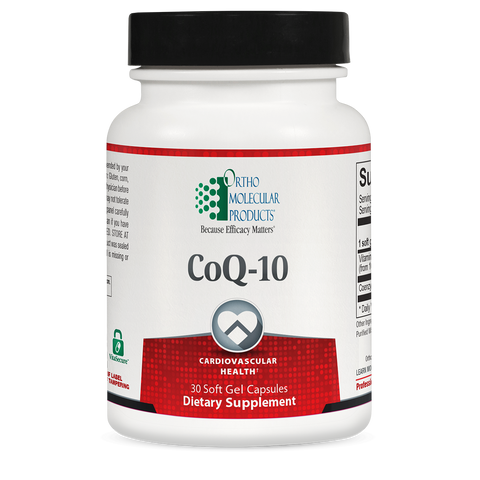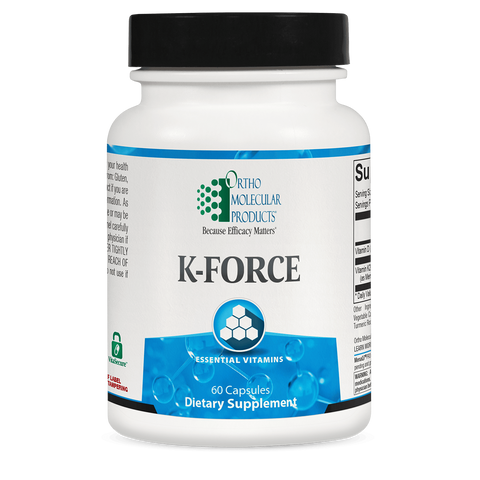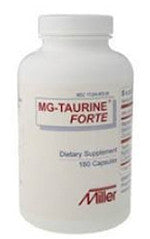CoQ-10
The antioxidant CoQ10 supports cell energy production and provides wide-ranging cardiovascular support.
Clinical Applications
- Enhances Cellular Energy Production and Physical Performance
- Supports Cardiovascular Health
- Supports Blood Sugar Balance Already Within Normal Levels
- Promotes Neurological Health
CoQ10 is a lipid-soluble antioxidant found in every cell in the body. CoQ10 is abundant in the mitochondrial membrane and plays an important role in the synthesis of adenosine triphosphate (ATP), a molecule of chemical energy upon which all cellular functions depend. The synthesis of ATP within the mitochondria is a multi-step series of biochemical reactions called the electron transport chain. As a coenzyme, CoQ10 is required for several enzymatic reactions required to produce cellular energy and to protect the body against free radicals produced during this process. To maintain energy production, mitochondrial CoQ10 is continuously recycled from ubiquinone, its ATP production state, to ubiquinol, its antioxidant state. After the age of 35 to 40 years, endogenous synthesis of CoQ10 begins to decline. CoQ10, an essential component of cellular energy production, has been shown to extend cell life and benefit high-energy systems, namely the cardiovascular, neurological and immune systems.
This CoQ10 formulation is delivered in an oil-based proprietary form and includes natural vitamin E for enhanced absorption and maximum stability.
Suggested Use:
1 or more soft gel capsules per day or as recommended by your health care professional.
CoQ10 Depletion
The body’s ability to produce and metabolize CoQ10 has been reported to decrease with age. CoQ10 deficiency may be caused by insufficient dietary intake of CoQ10, impairment in CoQ10 production, drug-induced CoQ10 depletion, gene mutations and oxidative stress. HMG-CoA reductase is an enzyme required for the synthesis of cholesterol and CoQ10. Cholesterol lowering medications inhibit this enzyme in order to reduce cholesterol synthesis, but may also simultaneously deplete CoQ10 status.
Cardiovascular Health
CoQ10 is important for all energy-dependent processes, and is especially helpful in strengthening contraction of the heart muscle. CoQ10 is also important for protection against free radical damage to the arterial vessels.
Blood Sugar Balance
The electron transport chain, a biochemical pathway in which CoQ10 plays a major role, significantly impacts carbohydrate metabolism. CoQ10 has been shown to support blood sugar balance already within normal levels.
Neurological Health
Neurons are characterized by high rates of metabolic activity and the need to respond quickly to energy demanding fluctuations in the brain. Mitochondrial alterations, leading to reduced ATP production, can promote neuronal dysfunction and degeneration via increased production of reactive oxygen species in the central nervous system. As an effective carrier with strong antioxidant properties, CoQ10 has been shown to promote neurological health.
We Also Recommend








